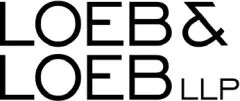- within Intellectual Property topic(s)
- in United States
- with readers working within the Retail & Leisure industries
- within Consumer Protection and Employment and HR topic(s)
In President Donald Trump's lawsuit against journalist Robert Woodward arising from Woodward's publication of audio recordings of Woodward's interviews of Trump in 2019 and 2020, district court dismisses Trump's second amended complaint alleging copyright and state law claims, holding that Trump did not plausibly allege that he intended to be a co-author of the interviews or that he owns a copyright interest in his stand-alone interview responses, and that Trump's state law claims are preempted by Copyright Act.
Plaintiff Donald J. Trump brought suit against defendants Robert Woodward, Simon & Schuster Inc. and Paramount Global based on the publication of recordings of interviews of Trump that Woodward conducted as part of an audiobook titled The Trump Tapes: Bob Woodward's Twenty Interviews with President Trump.
Between March 2016 and August 2020, Woodward conducted 20 interviews of Trump in connection with research for Woodward's second book about the Trump presidency titled Rage. Trump consented to being interviewed and to being recorded, but alleged that he consented “only for the purpose[] of the book” and not for any other purpose. In October 2022, Simon & Schuster published more than eight hours of the recorded interviews with Trump, interspersed with commentary by Woodward, as an audiobook titled The Trump Tapes. The audiobook was later released in CD, paperback and e-book formats.
Woodward obtained a copyright registration for the paperback version of The Trump Tapes, and on the same day Simon & Schuster obtained a copyright registration for the audiobook version as a “sound recording.” Five days later, Trump submitted a copyright application claiming sole authorship of the interviews, audiobook and derivative works. The U.S. Copyright Office issued a registration listing both Trump and Woodward as “author” and “copyright claimant” for the audiobook version, noting that the Copyright Office does not adjudicate conflicting claims.
In his second amended complaint, Trump sought a declaration that he is, at a minimum, a joint author and copyright owner of the interview recordings and derivative works associated with the audiobook or, alternatively, that he holds a copyright interest in his stand-alone interview responses. Trump also asserted state law claims for unjust enrichment and for an accounting of profits from The Trump Tapes against all defendants, and claims for breach of contract and breach of the implied covenant of good faith and fair dealing against Woodward. Defendants moved to dismiss all claims.
The district court granted defendants' motion to dismiss in its entirety. The court first held that the complaint makes clear that Trump did not intend to be a joint author of The Trump Tapes. Rather, according to the complaint, Trump never agreed, understood or intended that the interviews would be used for any purpose other than Woodward's upcoming book, Rage. Trump alleged that he did not intend or expect that his responses would be merged with Woodward's questions and published in The Trump Tapes, which was created under Woodward's control and authority, not Trump's, and released without Trump's permission. Therefore, Trump did not plausibly allege that he and Woodward “fully intended to be co-authors” of a joint work, as required under the Copyright Act and applicable case law. The court also declined to defer to the Copyright Office's registration of The Trump Tapes in the name of both Woodward and Trump, opting to instead make an independent determination of ownership.
Next, the court held that Trump did not have a copyright interest in his stand-alone responses to Woodward's interview questions. Although Trump consented to being recorded, he did not plead that he or anyone under his authority “fixed” his responses into “a tangible medium of expression,” as required under the Copyright Act. Rather, Woodward recorded the interviews at issue and decided to include them in The Trump Tapes. The court further held that Trump's responses to Woodward's questions are inseparable from the work as a whole, and thus not subject to independent copyright protection. In other words, Trump's responses to Woodward's questions, standing alone, have “little or no independent meaning,” and therefore “the interviews reflecting their exchanges must be treated as what they are: a unified, integrated work.”
Finally, the court held that Trump's state law claims are preempted by the Copyright Act. The first prong of the preemption analysis, the “subject matter” prong, was satisfied as to each of the state law claims, because the crux of each claim is that defendants made wrongful use of the interview recordings, which is a matter “within the subject matter of copyright.” The second prong of the preemption analysis, the “equivalence” prong, was also satisfied, because each of Trump's state law claims sought to vindicate rights protected by the Copyright Act and did not contain “extra elements” that would make them qualitatively different from a copyright claim. In particular, as to Trump's breach of contract claim, the court interpreted Trump's claim as alleging that Woodward's publication of the interview recordings in The Trump Tapes exceeded the limited license that Trump gave Woodward to use the interviews only for Rage, and cited cases holding that exploitation beyond the scope of a license is equivalent to copyright infringement.
The court noted that it appears unlikely that Trump would be able to adequately plead a plausible copyright interest in The Trump Tapes or any nonpreempted state law claim. Nevertheless, the court could not find that any amendment would be futile, and therefore permitted Trump to move to file a third amended complaint.
The content of this article is intended to provide a general guide to the subject matter. Specialist advice should be sought about your specific circumstances.
[View Source]


